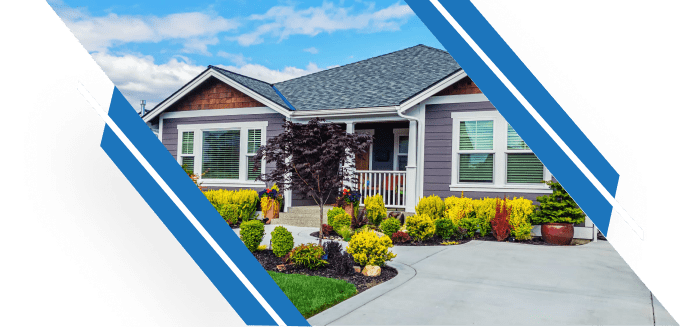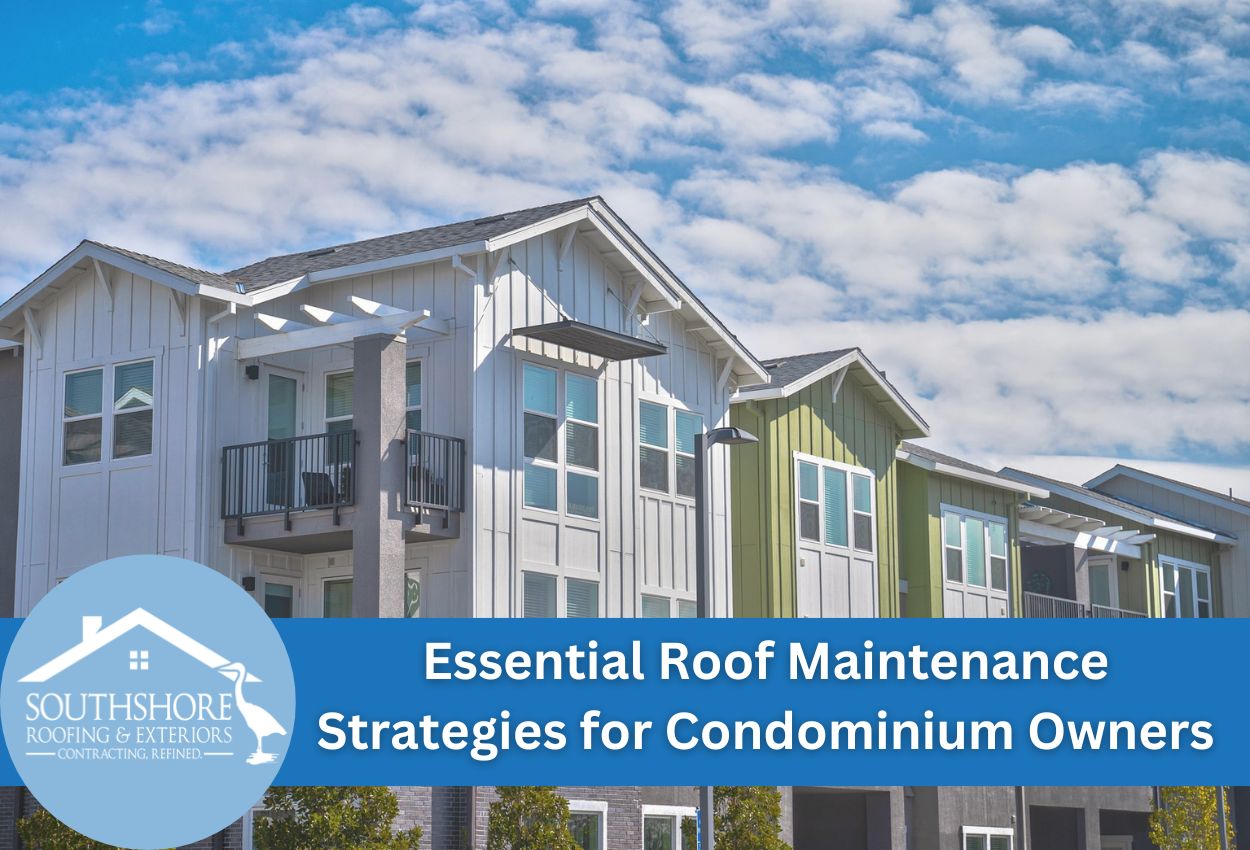Maintaining condominium roofs in Tampa is a task that requires custom attention and strategic planning. Florida’s humid subtropical climate creates demanding conditions for roofing systems, with salt-laden coastal air, hurricane threats, and relentless UV radiation. For condominium associations and individual unit owners, understanding these challenges is the first step toward effective roof maintenance.
Roof maintenance for condominiums involves a complex web of shared responsibilities between HOA boards, property managers, and unit owners. Clear communication and financial planning are essential for addressing both routine maintenance and emergency repairs. When properly maintained, a condominium roof can provide reliable protection for decades, but neglect can lead to expensive structural damage, internal leaks, and decreased property values.
Tampa condominium communities with flat roofing systems face additional considerations, as these structures require regular inspections and specialized care to prevent water pooling and membrane degradation. Keep reading to learn about condo roof maintenance tips!
Seasonal Inspection Schedule for Condominium Roofs
Maintaining a strategic inspection schedule is part of maintaining your condo and keeping it lasting for decades. A bi-annual approach offers the most comprehensive protection for multi-unit buildings throughout the year.
Pre-hurricane season assessments conducted in April and May should focus on three critical areas.
- Structural evaluations identify loose materials, deteriorating seals, and membrane damage.
- Drainage system inspections ensure gutters, downspouts, and scuppers are clear of debris to prevent water pooling during heavy storms.
- Rooftop equipment must be inspected and secured to withstand high winds, including HVAC units, satellite dishes, and solar panels that could become dangerous projectiles during hurricanes.
Post-storm season evaluations in November and December are equally important for condominium roof repair planning. These inspections document any accumulated damage from summer storms, assess waterproofing systems before winter rains, and help establish maintenance priorities for the upcoming year. Many Tampa area HOAs use this timing to budget for preventative roof maintenance for the following fiscal year.
Common Flat Roofing Issues on Tampa Condos
Flat roofs on Tampa condos face unique challenges that require careful monitoring and specialized maintenance approaches. Understanding these common issues can help property managers and HOA boards address problems before they grow into expensive repairs affecting multiple units.
The earliest warning signs of flat roof deterioration often include ponding water that remains longer than 48 hours after rainfall. This standing water adds significant weight to the roof and accelerates membrane breakdown. Blistering or bubbling on the roofing membrane also indicates trapped moisture or air beneath the surface, while separated flashing around vents, edges, and HVAC units creates vulnerable entry points for water intrusion.
Challenges with drainage systems on Florida condos require particular attention after heavy downpours.. Internal drainage systems can become clogged with debris, while scuppers and downspouts may develop blockages that prevent proper water evacuation. The high humidity and warm temperatures create perfect conditions for biological growth including algae, mold, and vegetation that can compromise the roof’s integrity.
A professional flat roof inspection for condos should include infrared scanning to detect hidden moisture and comprehensive drainage evaluation. For multi-unit buildings in Tampa, preventative roof maintenance programs implemented by HOAs should prioritize regular cleaning of drainage systems, prompt repair of membrane damages, and application of appropriate protective coatings resistant to UV degradation and ponding water.
Preventative Maintenance Protocols for Extending A Condo Roof’s Lifespan
Implementing a robust preventative maintenance program is the most cost-effective way to maximize the condo’s lifespan in Tampa’s challenging climate. Regular maintenance not only prevents premature deterioration, it also helps identify minor issues before they develop into major problems requiring extensive repairs.
Scheduled cleaning procedures are essential for condo roofs, which accumulate debris differently than single-family homes. Leaf litter, palm fronds, and wind-blown debris frequently collect in corners and around rooftop equipment on multi-unit buildings. Professional cleaning services should remove this material quarterly to maintain clear drainage pathways and prevent organic matter from decomposing and holding moisture against the roofing surface.
Protective coatings represent another critical component of preventative roof maintenance for Tampa condos. Specialized reflective coatings can reduce rooftop temperatures by up to 50 degrees, reducing the stress caused by thermal expansion, while deflecting harmful UV radiation. Silicone and acrylic elastomeric coatings create seamless waterproof barriers, particularly beneficial for flat roofing systems.
HOAs should establish comprehensive storm damage prevention protocols, including pre-storm preparation and post-storm assessment. This systematic approach helps condominium associations extend roof lifespans by 30% to 40% beyond manufacturer warranties, protecting their investment while reducing long-term maintenance costs. Professional roofing contractors specializing in Tampa’s multi-unit residential buildings can develop custom preventative maintenance schedules addressing the unique needs of each property.
Storm Damage Prevention for Condominium Roofs
Tampa’s vulnerability to severe weather events makes storm preparation essential for condominium roof protection. Reinforcing the roofing systems before hurricane season can dramatically reduce the chance of damage and subsequent repair costs for multi-unit properties.
Reinforcing vulnerable components begins with securing roof edges and flashings, which are often the first points of failure during high winds. Professional roofers can install enhanced edge metal systems and strengthen existing components with additional fasteners that meet Florida’s strict building codes.
Parapet walls require particular attention, as their height creates wind resistance that can lead to structural failure if not properly reinforced. Rooftop equipment anchoring should also be evaluated annually, with HVAC units, satellite dishes, and solar panels secured using hurricane-rated straps and fasteners.
Quick-response protocols are equally important for storm damage prevention. Condominium associations should establish emergency contact procedures with qualified commercial roofing contractors who can perform immediate post-storm assessments. These evaluations identify compromised areas requiring temporary protection to prevent secondary water damage. Emergency repair materials, including tarps, sealants, and temporary patching compounds, should be maintained in accessible storage locations for quick use.
Tampa condominium associations that implement comprehensive storm preparation and quick-response protocols experience significantly less secondary damage from water infiltration and can resume normal operations faster following severe weather events. Regular drills and clear communication protocols ensure all stakeholders understand their responsibilities during these critical situations.
Navigating HOA Decision-Making for Major Roof Repairs
Successfully implementing roof maintenance and repair projects for condos requires strategically navigating the HOA governance structures. Agreement among board members and unit owners starts with transparent communication about the condition of the existing roof system and a clear presentation of options. Educational presentations that visually demonstrate deterioration issues and explain how preventative roof maintenance saves money over time can help overcome resistance to the costs involved.
Financial planning represents a critical aspect of condominium roof repair decision-making. HOA boards should present detailed comparisons showing the cost differential between proactive maintenance versus emergency repairs, including the potential impact on individual unit owners through special assessments. Establishing adequate reserves specifically earmarked for roof replacement helps distribute costs over time rather than burdening owners with large unexpected expenses.
The most successful condominium roof projects result from methodical planning and inclusive decision-making processes that balance immediate budget constraints against long-term protection needs. By establishing clear contractor selection standards and transparent communication protocols, HOA boards can build the trust necessary to implement comprehensive roofing solutions for their communities.
Leveraging Professional Partnerships for Optimal Roof Management
Establishing lasting relationships with qualified roofing contractors is a cornerstone of effective condominium roof management. These partnerships provide Tampa condominium associations with specialized expertise that understands the unique challenges of multi-unit buildings. Quality roofing professionals familiar with Florida’s building codes and weather patterns can provide tailored maintenance programs that address the specific needs of your property, whether it features tile, metal, or flat roofing systems.
Documentation is equally important for tracking your condominium’s roofing history. Comprehensive digital records should include inspection reports, maintenance activities, repair documentation, and warranty information for all roofing components. These records become valuable when planning future budgets and evaluating performance trends. Many condominium associations now implement cloud-based documentation systems that provide board members and property managers with instant access to historical roof performance data.
Professional roofing partners can help establish performance metrics specific to your condo’s roof and the type of conditions it’s exposed to. These metrics might include membrane elasticity measurements for flat roofs, granule loss rates for shingles, or fastener integrity for metal systems. With storm damage prevention becoming increasingly important for Florida condominiums, professional partnerships also provide access to emergency response teams that can quickly address damage following severe weather events, preventing minor issues from turning into major repairs that affect multiple units.
Get Expert Roof Maintenance Solutions for Tampa Condos with SouthShore Roofing & Exteriors
At SouthShore Roofing & Exteriors, our team has extensive experience handling condo roofing needs, maintaining their protective qualities and appearance.
Don’t wait for minor issues to become major problems. Regular maintenance and professional inspections can drastically extend the lifespan of your condo’s roof and prevent expensive emergency repairs. Let our experts help you manage your roof maintenance efficiently and effectively.
Ready to discuss your condominium’s roofing needs? Call us today at (813) 400-3329 to find out more about how we can help you!




